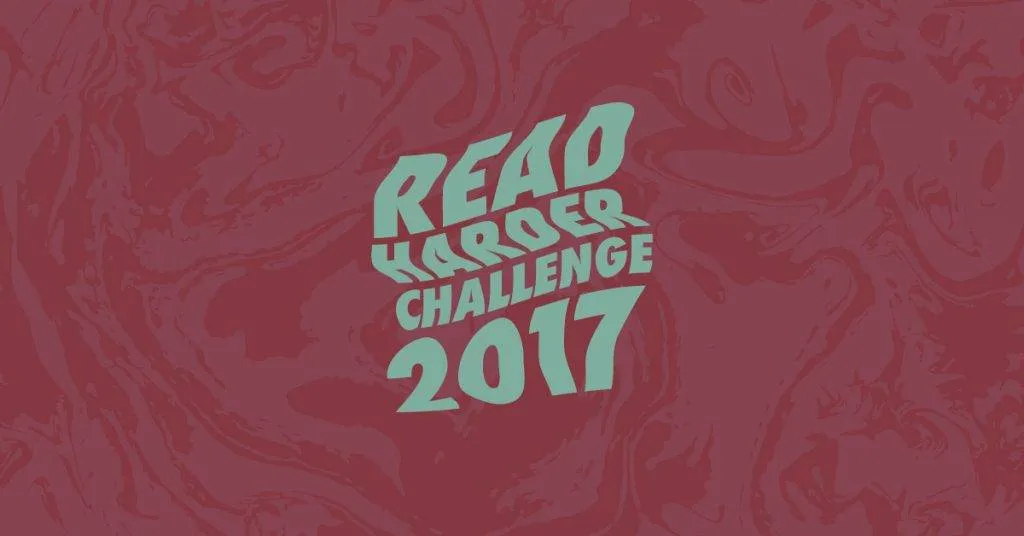
Read Harder 2017: Central & South American Writers, Writing About Home
This content contains affiliate links. When you buy through these links, we may earn an affiliate commission.
You’ve read Rachel’s post, printed out your Read Harder checklist and are ready to start filling it in. Book about sports… check! A debut novel….check! A book about books… check! Read a book set in Central or South America, written by a Central or South American author… oh for f#$%# sake – even the description is long!
Don’t worry, we’ve got you covered, whatever your tastes. Crime novels, political thrillers, poetry, romances and short stories; established and emerging authors, sweeping epics and playful novellas. You’ll find LGBTQ writers, writers of color and women writers. There’s even a soccer novel.
And if the list below seems a bit lopsided, remember that there’s a political and economic component to what does and doesn’t get translated. The larger, wealthier countries tend to have more books available in translation. Or perhaps it’s one break-out author that generates international interest. South America (particularly Argentina, Brazil, Chile, and Colombia) is flush with writers whose work can be read in English. Central America took a little more research. The nearest I was able to get to Panama was Cesar Aira’s Varamos.
I’ve organized the authors by region and country, and included at least one title each. I’ve also added brief descriptions — some mine, some from the publisher. Many of these writers have had multiple books published, so you don’t have to select the one I picked. This list is only meant to be an introduction.
 Carlos Fonseca (Costa Rica) – Colonel Lagrimas “Holed away in a cabin in the Pyrenees, the world-famous and enigmatic mathematician Alexander Grothendieck is furiously racing death to complete a final project. But what exactly is this monumental, mysterious undertaking?”
Carlos Fonseca (Costa Rica) – Colonel Lagrimas “Holed away in a cabin in the Pyrenees, the world-famous and enigmatic mathematician Alexander Grothendieck is furiously racing death to complete a final project. But what exactly is this monumental, mysterious undertaking?”
 Rodigo Rey Rosa (Guatemala) – The Beggar’s Knife is a short story collection “from one of Guatemala’s finest young writers, these twenty-six stories—at once brutal and intensely lyrical—are peopled with sorcerers, ghosts, and assassins.”
Eduardo Halfon (Guatemala) – The Polish Boxer is a fictional collection of linked short stories based on the author’s life.
Rodigo Rey Rosa (Guatemala) – The Beggar’s Knife is a short story collection “from one of Guatemala’s finest young writers, these twenty-six stories—at once brutal and intensely lyrical—are peopled with sorcerers, ghosts, and assassins.”
Eduardo Halfon (Guatemala) – The Polish Boxer is a fictional collection of linked short stories based on the author’s life.
 Sergio Ramírez (Nicaragua) – Margarita, How Beautiful the Sea “León, Nicaragua, 1907. During a tribute he delivers during his triumphal return to his native city, Rubén Darío writes on the fan of a little girl one of his most famous poems, ‘Margarita, How Beautiful the Sea. In 1956 in a cafe in León, a group of literati gather, dedicated, among other things, to the rigorous reconstruction of the legend surrounding Darío-but also to conspire. There will be an attempt against dictator Somoza’s life, and that little girl with the fan a half-century before will not be a disinterested party.”
Sergio Ramírez (Nicaragua) – Margarita, How Beautiful the Sea “León, Nicaragua, 1907. During a tribute he delivers during his triumphal return to his native city, Rubén Darío writes on the fan of a little girl one of his most famous poems, ‘Margarita, How Beautiful the Sea. In 1956 in a cafe in León, a group of literati gather, dedicated, among other things, to the rigorous reconstruction of the legend surrounding Darío-but also to conspire. There will be an attempt against dictator Somoza’s life, and that little girl with the fan a half-century before will not be a disinterested party.”
 Ricardo Piglia (Argentina) – Target In the Night tells the story of a detective trying to solve the murder of a visitor to a backwater town populated by eccentric characters.
Claudia Pineiro (Argentina) – Betty Boo is a fun and engaging mystery with an unlikely cast of characters – a middle-aged female crime novelist, a gumshoe reporter for the local newspaper’s crime desk and his young replacement – working together to solve a series of murders in an exclusive gated community.
Ricardo Piglia (Argentina) – Target In the Night tells the story of a detective trying to solve the murder of a visitor to a backwater town populated by eccentric characters.
Claudia Pineiro (Argentina) – Betty Boo is a fun and engaging mystery with an unlikely cast of characters – a middle-aged female crime novelist, a gumshoe reporter for the local newspaper’s crime desk and his young replacement – working together to solve a series of murders in an exclusive gated community.
 Clarice Lispector (Brazil) – The Hour of the Star “Narrated by the cosmopolitan Rodrigo S.M., this brief, strange, and haunting tale is the story of Macabéa, one of life’s unfortunates. Living in the slums of Rio and eking out a poor living as a typist, Macabéa loves movies, Coca-Cola, and her rat of a boyfriend; she would like to be like Marilyn Monroe, but she is ugly, underfed, sickly, and unloved”
Lucio Cardoso (Brazil) – Chronicle of the Murdered House is filled with Faulknerian themes: an old family in decline, eccentric characters, a beautiful woman at the center of the drama, incest and death.
Edgard Telles Ribeiro (Brazil) – His Own Man chronicles the rise of a Brazilian diplomat as witnessed by a colleague with more scruples and less ambition.
Clarice Lispector (Brazil) – The Hour of the Star “Narrated by the cosmopolitan Rodrigo S.M., this brief, strange, and haunting tale is the story of Macabéa, one of life’s unfortunates. Living in the slums of Rio and eking out a poor living as a typist, Macabéa loves movies, Coca-Cola, and her rat of a boyfriend; she would like to be like Marilyn Monroe, but she is ugly, underfed, sickly, and unloved”
Lucio Cardoso (Brazil) – Chronicle of the Murdered House is filled with Faulknerian themes: an old family in decline, eccentric characters, a beautiful woman at the center of the drama, incest and death.
Edgard Telles Ribeiro (Brazil) – His Own Man chronicles the rise of a Brazilian diplomat as witnessed by a colleague with more scruples and less ambition.
 Lina Meruane (Chile) – Seeing Red is about a young woman losing her sight and the lengths she might go, and who she would sacrifice, in order to get it back.
Antonio Skarmeta (Chile) – Several of this author’s books, including The Postman and The Days of the Rainbow, have been made into successful films in his native Chile.
Alejandro Zambra (Chile) – “Written in the form of a standardized test, Multiple Choice invites the reader to respond to virtuoso language exercises and short narrative passages through multiple-choice questions that are thought-provoking, usually unanswerable, and often absurd.”
Roberto Bolano (Chile) – Distant Star If you’ve never read Bolano, this is a wonderful place to start. An expanded version of a chapter in his book Nazi Literatures in the Americas, Distant Star tells the brilliant and twisted story of Albert Ruiz-Tagle – an artist, aviator and killer.
Lina Meruane (Chile) – Seeing Red is about a young woman losing her sight and the lengths she might go, and who she would sacrifice, in order to get it back.
Antonio Skarmeta (Chile) – Several of this author’s books, including The Postman and The Days of the Rainbow, have been made into successful films in his native Chile.
Alejandro Zambra (Chile) – “Written in the form of a standardized test, Multiple Choice invites the reader to respond to virtuoso language exercises and short narrative passages through multiple-choice questions that are thought-provoking, usually unanswerable, and often absurd.”
Roberto Bolano (Chile) – Distant Star If you’ve never read Bolano, this is a wonderful place to start. An expanded version of a chapter in his book Nazi Literatures in the Americas, Distant Star tells the brilliant and twisted story of Albert Ruiz-Tagle – an artist, aviator and killer.
 Gabriel Garcia Marquez (Colombia) – One Hundred Years of Solitude and Love In the Time of Cholera are two classic novels by Gabriel Garcia Marquez, one of Latin America’s most famous authors.
Evelio Rosero (Colombia) – Feast of the Innocents is the story of a unhappy man, a medical doctor, who becomes obsessed with debunking the myth of the Colombian national hero Simon Bolivar, known popularly as The Liberator.
Gabriel Garcia Marquez (Colombia) – One Hundred Years of Solitude and Love In the Time of Cholera are two classic novels by Gabriel Garcia Marquez, one of Latin America’s most famous authors.
Evelio Rosero (Colombia) – Feast of the Innocents is the story of a unhappy man, a medical doctor, who becomes obsessed with debunking the myth of the Colombian national hero Simon Bolivar, known popularly as The Liberator.
 Augusto Roa Bastos (Paraguay) – I the Supreme is a historical novel depicting the life of the 19th century Paraguayan dictator Jose Gaspar Rodriguez de Francia.
Augusto Roa Bastos (Paraguay) – I the Supreme is a historical novel depicting the life of the 19th century Paraguayan dictator Jose Gaspar Rodriguez de Francia.
 Mario Benedetti (Uruguay) – Benedetti’s name pops up again and again in interviews and essays by other Latin American writers. Witness: The Selected Poems should knock “A collection of poetry in translation on a theme other than love” off your list. Blood Pact and Other Stories is a short story collection.
Carmen Posadas (Uruguay) – Little Indiscretions: A Delectable Mystery is an Agatha Christie style murder mystery in which a pastry chef to the rich and powerful is found murdered at a party which he was catering.
Mario Benedetti (Uruguay) – Benedetti’s name pops up again and again in interviews and essays by other Latin American writers. Witness: The Selected Poems should knock “A collection of poetry in translation on a theme other than love” off your list. Blood Pact and Other Stories is a short story collection.
Carmen Posadas (Uruguay) – Little Indiscretions: A Delectable Mystery is an Agatha Christie style murder mystery in which a pastry chef to the rich and powerful is found murdered at a party which he was catering.
Belize
Zee Edgell (Belize) – Beka Lamb “Subtle yet rich descriptions of culture, society, and family life in Belize adorn Zee Edgell’s beautifully narrated story of a short time in the life of 14-year-old Beka Lamb.”Costa Rica
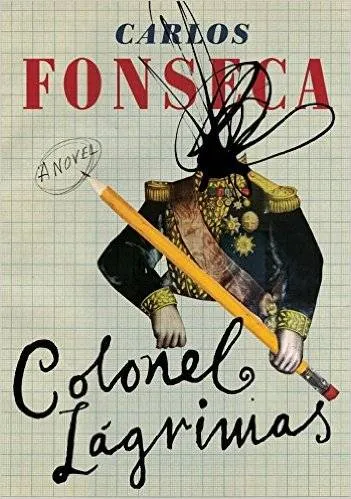 Carlos Fonseca (Costa Rica) – Colonel Lagrimas “Holed away in a cabin in the Pyrenees, the world-famous and enigmatic mathematician Alexander Grothendieck is furiously racing death to complete a final project. But what exactly is this monumental, mysterious undertaking?”
Carlos Fonseca (Costa Rica) – Colonel Lagrimas “Holed away in a cabin in the Pyrenees, the world-famous and enigmatic mathematician Alexander Grothendieck is furiously racing death to complete a final project. But what exactly is this monumental, mysterious undertaking?”
El Salvador
Horacio Castellanos Moya (El Salvador) – Dance With Snakes “As El Salvador returns to peace after more than a decade of civil war, Eduardo Sosa, an unemployed sociologist, becomes fascinated by a homeless man who lives in a beat-up yellow Chevrolet Assuming his identity, Sosa unleashes a reign of terror on San Salvador with his snake accomplices.”Guatemala
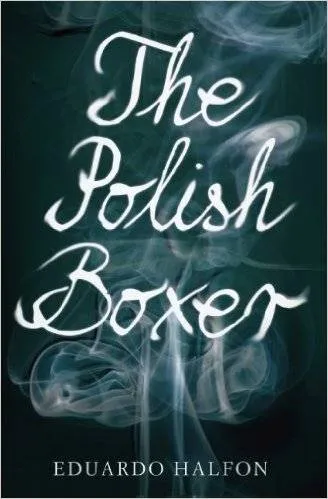 Rodigo Rey Rosa (Guatemala) – The Beggar’s Knife is a short story collection “from one of Guatemala’s finest young writers, these twenty-six stories—at once brutal and intensely lyrical—are peopled with sorcerers, ghosts, and assassins.”
Eduardo Halfon (Guatemala) – The Polish Boxer is a fictional collection of linked short stories based on the author’s life.
Rodigo Rey Rosa (Guatemala) – The Beggar’s Knife is a short story collection “from one of Guatemala’s finest young writers, these twenty-six stories—at once brutal and intensely lyrical—are peopled with sorcerers, ghosts, and assassins.”
Eduardo Halfon (Guatemala) – The Polish Boxer is a fictional collection of linked short stories based on the author’s life.
Honduras
Moya Castellanos (Honduras) – The She-Devil In the Mirror “Salvadoran society is shocked by the gruesome murder of a young upper-class woman, and no one moreso than her best friend Laura. In her first-person solo narration, Laura rattles on and on about her disbelief and horror at the evils all around her―but who’s that in the mirror?”Nicaragua
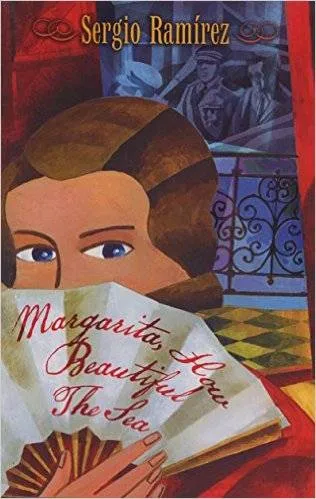 Sergio Ramírez (Nicaragua) – Margarita, How Beautiful the Sea “León, Nicaragua, 1907. During a tribute he delivers during his triumphal return to his native city, Rubén Darío writes on the fan of a little girl one of his most famous poems, ‘Margarita, How Beautiful the Sea. In 1956 in a cafe in León, a group of literati gather, dedicated, among other things, to the rigorous reconstruction of the legend surrounding Darío-but also to conspire. There will be an attempt against dictator Somoza’s life, and that little girl with the fan a half-century before will not be a disinterested party.”
Sergio Ramírez (Nicaragua) – Margarita, How Beautiful the Sea “León, Nicaragua, 1907. During a tribute he delivers during his triumphal return to his native city, Rubén Darío writes on the fan of a little girl one of his most famous poems, ‘Margarita, How Beautiful the Sea. In 1956 in a cafe in León, a group of literati gather, dedicated, among other things, to the rigorous reconstruction of the legend surrounding Darío-but also to conspire. There will be an attempt against dictator Somoza’s life, and that little girl with the fan a half-century before will not be a disinterested party.”
Panama
Cesar Aira (Argentina) – Varamo Cesar Aira is an Argentine author who set his story in Panama, which fulfills the requirements of the challenge. The hero of his story is “a third-class clerk” working for the Panamanian government. In the year 1923, during the ten- to twelve-hours described in this novel, he will be inspired and write The Song of the Virgin Child. Varamo follows him through that important day.Argentina
Juan Jose Saer (Argentina) – Scars Like Faulkner’s Yoknapatawpha, Saer wrote multiple novels whose characters intersect. Jorge Luis Borges (Argentina) – Ficciones Short stories by one of the greatest writers who ever lived. Eduardo Sacheri (Argentina) – The Secret In Their Eyes is a compelling murder mystery that has nothing to do with last year’s terrible Julia Roberts movie. Papers In the Wind is a heartwarming and funny novel in which a group of friends attempt to secure the financial future for their dead friend’s daughter by selling his share in a minor league soccer player.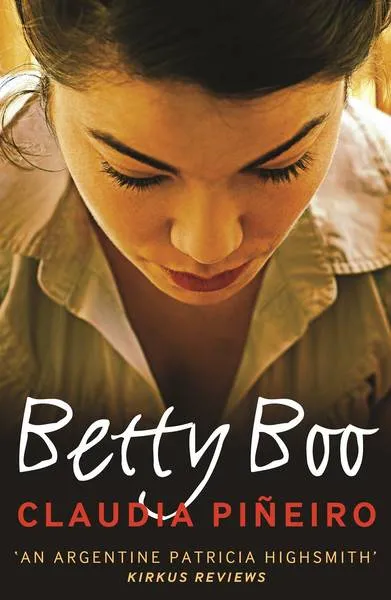 Ricardo Piglia (Argentina) – Target In the Night tells the story of a detective trying to solve the murder of a visitor to a backwater town populated by eccentric characters.
Claudia Pineiro (Argentina) – Betty Boo is a fun and engaging mystery with an unlikely cast of characters – a middle-aged female crime novelist, a gumshoe reporter for the local newspaper’s crime desk and his young replacement – working together to solve a series of murders in an exclusive gated community.
Ricardo Piglia (Argentina) – Target In the Night tells the story of a detective trying to solve the murder of a visitor to a backwater town populated by eccentric characters.
Claudia Pineiro (Argentina) – Betty Boo is a fun and engaging mystery with an unlikely cast of characters – a middle-aged female crime novelist, a gumshoe reporter for the local newspaper’s crime desk and his young replacement – working together to solve a series of murders in an exclusive gated community.
Bolivia
Rodrigo Hasbun (Bolivia) – Affections follows the lives three sisters, all marked by their father’s failed expedition into the Amazon. It is based on the life of Hans Ertl, an explorer and Nazi cameraman.Brazil
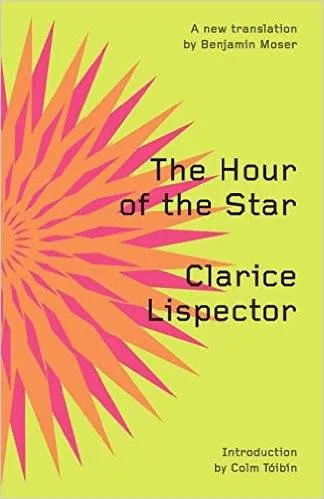 Clarice Lispector (Brazil) – The Hour of the Star “Narrated by the cosmopolitan Rodrigo S.M., this brief, strange, and haunting tale is the story of Macabéa, one of life’s unfortunates. Living in the slums of Rio and eking out a poor living as a typist, Macabéa loves movies, Coca-Cola, and her rat of a boyfriend; she would like to be like Marilyn Monroe, but she is ugly, underfed, sickly, and unloved”
Lucio Cardoso (Brazil) – Chronicle of the Murdered House is filled with Faulknerian themes: an old family in decline, eccentric characters, a beautiful woman at the center of the drama, incest and death.
Edgard Telles Ribeiro (Brazil) – His Own Man chronicles the rise of a Brazilian diplomat as witnessed by a colleague with more scruples and less ambition.
Clarice Lispector (Brazil) – The Hour of the Star “Narrated by the cosmopolitan Rodrigo S.M., this brief, strange, and haunting tale is the story of Macabéa, one of life’s unfortunates. Living in the slums of Rio and eking out a poor living as a typist, Macabéa loves movies, Coca-Cola, and her rat of a boyfriend; she would like to be like Marilyn Monroe, but she is ugly, underfed, sickly, and unloved”
Lucio Cardoso (Brazil) – Chronicle of the Murdered House is filled with Faulknerian themes: an old family in decline, eccentric characters, a beautiful woman at the center of the drama, incest and death.
Edgard Telles Ribeiro (Brazil) – His Own Man chronicles the rise of a Brazilian diplomat as witnessed by a colleague with more scruples and less ambition.
Chile
Carlos Labbe (Chile) – Loquela is a mind-twisting novel that defies description. I can’t claim to entirely understand the way Labbe’s mind works, but I enjoy the result.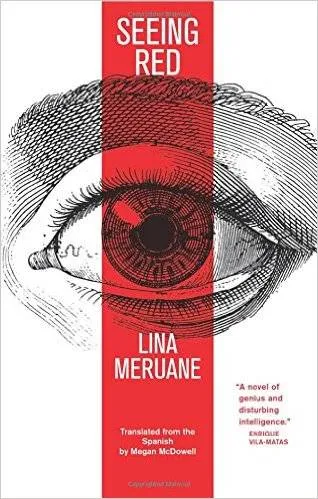 Lina Meruane (Chile) – Seeing Red is about a young woman losing her sight and the lengths she might go, and who she would sacrifice, in order to get it back.
Antonio Skarmeta (Chile) – Several of this author’s books, including The Postman and The Days of the Rainbow, have been made into successful films in his native Chile.
Alejandro Zambra (Chile) – “Written in the form of a standardized test, Multiple Choice invites the reader to respond to virtuoso language exercises and short narrative passages through multiple-choice questions that are thought-provoking, usually unanswerable, and often absurd.”
Roberto Bolano (Chile) – Distant Star If you’ve never read Bolano, this is a wonderful place to start. An expanded version of a chapter in his book Nazi Literatures in the Americas, Distant Star tells the brilliant and twisted story of Albert Ruiz-Tagle – an artist, aviator and killer.
Lina Meruane (Chile) – Seeing Red is about a young woman losing her sight and the lengths she might go, and who she would sacrifice, in order to get it back.
Antonio Skarmeta (Chile) – Several of this author’s books, including The Postman and The Days of the Rainbow, have been made into successful films in his native Chile.
Alejandro Zambra (Chile) – “Written in the form of a standardized test, Multiple Choice invites the reader to respond to virtuoso language exercises and short narrative passages through multiple-choice questions that are thought-provoking, usually unanswerable, and often absurd.”
Roberto Bolano (Chile) – Distant Star If you’ve never read Bolano, this is a wonderful place to start. An expanded version of a chapter in his book Nazi Literatures in the Americas, Distant Star tells the brilliant and twisted story of Albert Ruiz-Tagle – an artist, aviator and killer.
Colombia
Juan Gabriel Vasquez (Colombia) – After reading an article about an escaped hippo that once belonged to Pablo Escobar, a young lawyer remembers an incident years before when his friend was shot and killed in front of him. The Sound of Things Falling is a love story, as well as a novel about the generation that came of age during the Colombian drug wars.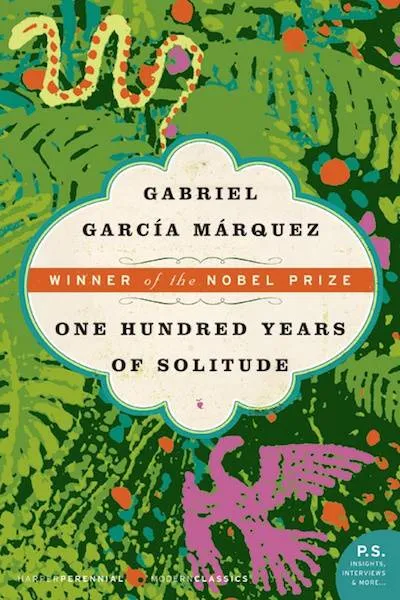 Gabriel Garcia Marquez (Colombia) – One Hundred Years of Solitude and Love In the Time of Cholera are two classic novels by Gabriel Garcia Marquez, one of Latin America’s most famous authors.
Evelio Rosero (Colombia) – Feast of the Innocents is the story of a unhappy man, a medical doctor, who becomes obsessed with debunking the myth of the Colombian national hero Simon Bolivar, known popularly as The Liberator.
Gabriel Garcia Marquez (Colombia) – One Hundred Years of Solitude and Love In the Time of Cholera are two classic novels by Gabriel Garcia Marquez, one of Latin America’s most famous authors.
Evelio Rosero (Colombia) – Feast of the Innocents is the story of a unhappy man, a medical doctor, who becomes obsessed with debunking the myth of the Colombian national hero Simon Bolivar, known popularly as The Liberator.
Ecuador
Jorge Carrera Andrade (Ecuador) – “Equal parts essay, anthology, and poetry, and weirdly post-modern in structure, Micrograms embodies the work of Jorge Carrera Andrade, illustrating his claim that the impulse toward the microgram has always existed.” Micrograms is a poetry collection on a theme other than love.Guyana
Oonya Kempadoo (Guyana) – Buxton Spice “Told in the voice of a girl as she moves from childhood into adolescence, Buxton Spice is the story the town of Tamarind Grove: its eccentric families, its sweeping joys, and its sudden tragedies. The novel brings to life 1970s Guyana…”Paraguay
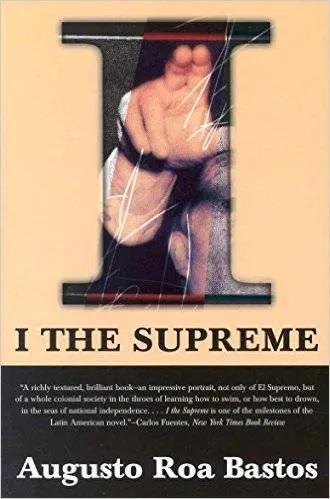 Augusto Roa Bastos (Paraguay) – I the Supreme is a historical novel depicting the life of the 19th century Paraguayan dictator Jose Gaspar Rodriguez de Francia.
Augusto Roa Bastos (Paraguay) – I the Supreme is a historical novel depicting the life of the 19th century Paraguayan dictator Jose Gaspar Rodriguez de Francia.
Peru
Claudia Salazar Jiménez (Peru) – In Blood of the Dawn “The fate of three women intertwine and are ripped apart during what’s known by ‘the time of fear’ in Peruvian history when the Shining Pat militant insurgency was at its peak”. Told through shifting first person by a revolutionary, an indigenous woman and a journalist, In Blood of the Dawn speaks powerfully of the universal situation of women in conflict zones. Mario Vargas Llosa (Peru) – The Dream of the Celt is a beautifully written historical novel by a Nobel Laureate, translated by the legendary Edith Grossman, about the life of Roger Casement. His early career as a public servant and human rights activist took him to Africa and the Amazon, where he helped expose the barbarity of rubber farming to the world. Later he would take up the cause of Irish Nationalism, which would brand him a traitor. “A painstakingly research and lively novel about a neglected human rights pioneer.”Suriname
Cynthia Mcleod (Suriname) – The Cost of Sugar is “An intriguing history of those rabid times in Dutch Surinam between 1765-1779 when sugar was king.Told through the eyes of two Jewish step sisters, Eliza and Sarith… The Cost of Sugar is a frank expose of the tragic toll on the lives of colonists and slaves alike.”Uruguay
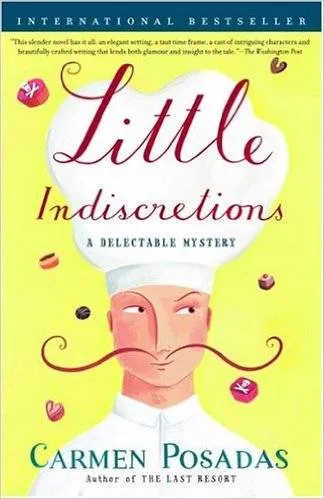 Mario Benedetti (Uruguay) – Benedetti’s name pops up again and again in interviews and essays by other Latin American writers. Witness: The Selected Poems should knock “A collection of poetry in translation on a theme other than love” off your list. Blood Pact and Other Stories is a short story collection.
Carmen Posadas (Uruguay) – Little Indiscretions: A Delectable Mystery is an Agatha Christie style murder mystery in which a pastry chef to the rich and powerful is found murdered at a party which he was catering.
Mario Benedetti (Uruguay) – Benedetti’s name pops up again and again in interviews and essays by other Latin American writers. Witness: The Selected Poems should knock “A collection of poetry in translation on a theme other than love” off your list. Blood Pact and Other Stories is a short story collection.
Carmen Posadas (Uruguay) – Little Indiscretions: A Delectable Mystery is an Agatha Christie style murder mystery in which a pastry chef to the rich and powerful is found murdered at a party which he was catering.











